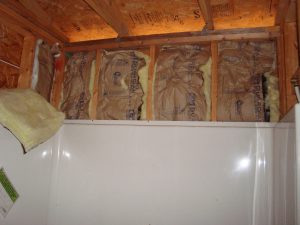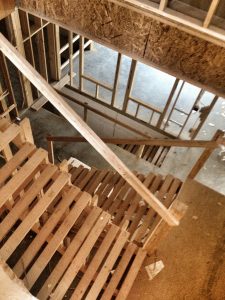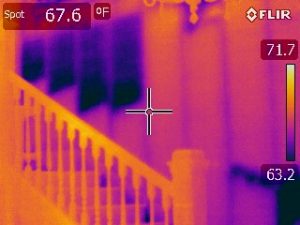 I respond to a lot of requests for proposals and do a lot of interviews for new design projects. Sometimes there is a higher standard to which the new design needs to meet, and sometimes the potential project is only aiming for building code minimum standards. What quality do you want for your home / business?
I respond to a lot of requests for proposals and do a lot of interviews for new design projects. Sometimes there is a higher standard to which the new design needs to meet, and sometimes the potential project is only aiming for building code minimum standards. What quality do you want for your home / business?
When you start planning your new commercial building, home, or renovation project, what standard will you set for the construction? Many people assume that building code is a good standard that will deliver a quality project. They also assume that if a building “meets code,” it will perform well over time, be efficient, and be durable.

Unfortunately, that is not the goal of the building code. The building code is a reactive document that is modified over time (in Virginia every 3 years) very slowly to protect the health, safety, and welfare of the general public as a minimum standard. The standards in the code come from failures that have been identified in the past and serve as a way to protect against repeating those same failures. There is a lot of information about structural needs in a building. There is a heavy focus on fire safety. Building code even sets some very minimum standards for energy usage. However, setting the building code as a standard for your projects structural performance will not deliver a home that prevents the china from rattling as you walk past. It is a minimum standard that will simply deliver a project that is structurally safe. If you want a building that is energy-efficient, the building code is not a place to look for standards. This is again, a minimum guideline that does not look at the interconnections between systems and the performance of a building. You can construct a code compliant building that costs you a fortune to maintain each month that is almost never comfortable. You can construct a code minimum building that has low performance, unhealthy indoor air, and high energy bills.

When you are planning your next building, it is important to ask yourself some key questions:
What is your goal for energy usage?
How much maintenance will you find acceptable?
How much “bounce” is acceptable in your floor system?
What kind of priority is the indoor air quality?
These are all questions that building to code will be delivered at a very minimal level. Some of these questions address quality issues and some are systems coordination. A high performance building should be a goal for all of us. Evaluate all the building standards available or hire someone that understands these systems to help set the standards. Using LEED and EarthCraft is a good start to help you evaluate your goal, but don’t stop there. Look beyond these rating systems and think about what comfort you desire in your project. This is where you will make some really valuable decisions about quality and priority. If you want a building that is energy-efficient, healthy, and durable, code minimum is not the answer.




